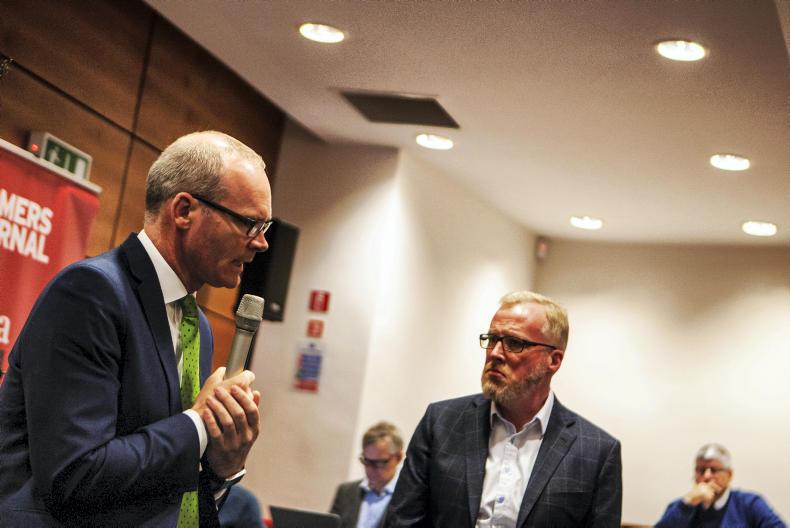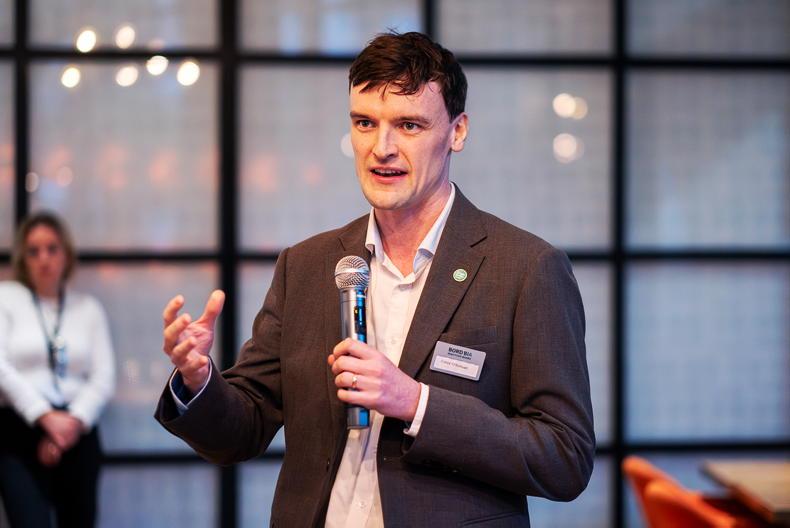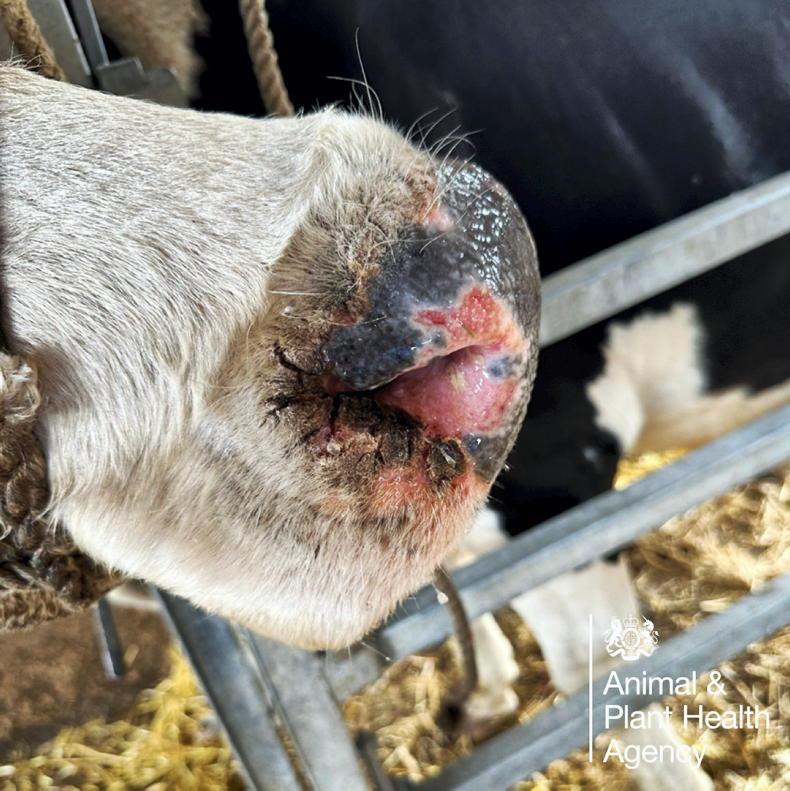If WTO tariffs were to be placed on Irish beef as a result of a no-deal Brexit, then the beef industry could be “wiped out”, An Tánaiste Simon Coveney told a Guild of Agricultural Journalists breakfast briefing on Friday morning.
“When you think about where [Ireland’s] beef goes, 90% of it gets exported and more than half of that goes to the UK.
“If you look at the margin on that product for beef farmers, you’re talking about a pretty tight single-figure margin in terms of the value of [that] beef product.
“The imposition potentially of WTO tariffs because of the absence of any alternative agreement or deal on a future agreement, [means] you could be talking about tariffs on beef of up to 40%.
“If that were to happen, you’re talking about an industry being wiped out,” he said.
If tariffs were to become a reality on Irish beef after #Brexit ...'you're talking about an industry being wiped out' - @simoncoveney tells the @AgriGuild briefing pic.twitter.com/9yJKGVEeH0
— Amy Forde (@amyforde6) November 2, 2018
Coveney said that a lot of things would need to happen in order for that to become a reality, but said that even in the event of a no-deal Brexit, he does not think Britain would look for the imposition of tariffs.
He also said that the imposition of any barriers down the Irish Sea to that trade, whether its tariffs or checks and delays, will have a very big impact on both sides of the Irish Sea.
Irish border
The Tánaiste said that what hasn’t been fully resolved is how we avoid the implementation of a physical border on the island of Ireland between the two jurisdictions, Ireland and Northern Ireland, as an unintended consequence of Brexit.
“The British prime minister has provided guarantees that no border infrastructure will re-emerge or no checks or controls will happen on the island of Ireland.
“We are trying to find a way of getting a legal wording now that follows through on the British government’s commitments, but is politically saleable in Westminster amongst the unionist community and nationalist community and that has proven very difficult.”
.@simoncoveney at @AgriGuild briefing: “We’re in the endgame of part 1 of #Brexit” - but withdrawal agreement will not set the detail of future relationship. How to avoid physical border infrastructure “not resolved” yet pic.twitter.com/mntmF5pmwG
— Thomas Hubert ?? (@tom_hubert) November 2, 2018
The Tánaiste also said that the border goes way beyond trading arrangements.
“If you don’t understand that, you don’t understand Ireland. If you understand the complexity of the history between Ireland and United Kingdom, the story of how Northern Ireland came into being and the tensions and fragility of relationships in Northern Ireland and north and south between communities – you have to understand that history to understand why this is such [an issue] in Ireland,” he said.
Damage limitation
Also speaking at the breakfast briefing was IFA president Joe Healy, who said no matter what the Brexit outcome, it is about damage limitation to Irish agriculture.
“The fear now is that Brexit [could] lead into an illegal economy along by the border where we now have a legal economy,” he said.
Healy also said that from an agricultural point of view, from the word go, there was uncertainty. “You immediately had currency fluctuations,” he said.
Zoe Kavanagh of the National Dairy Council, as well as editor and CEO of the Irish Farmers Journal Justin McCarthy, also took part in the briefing, which was chaired by Damien O’Reilly of Countrywide.








SHARING OPTIONS